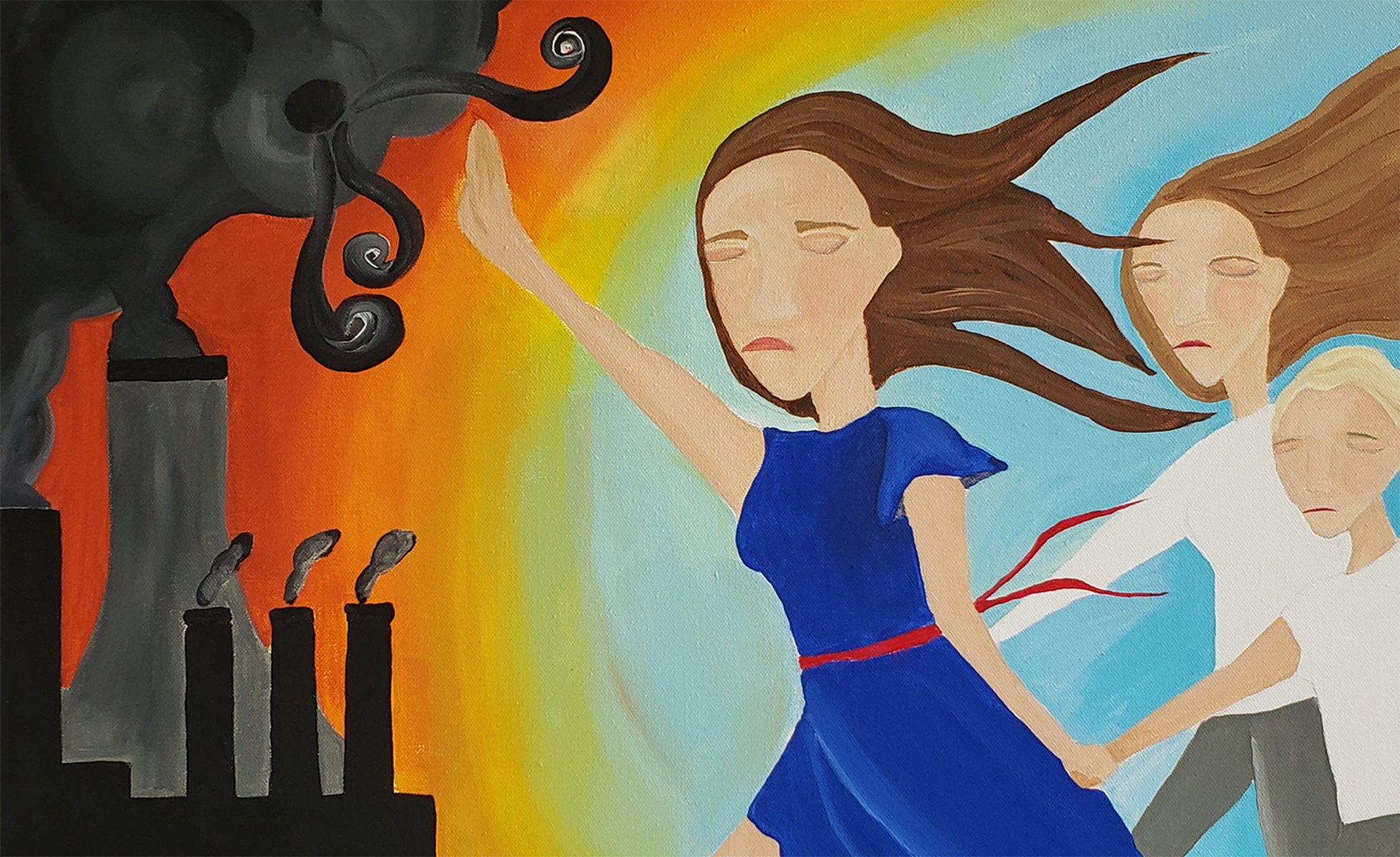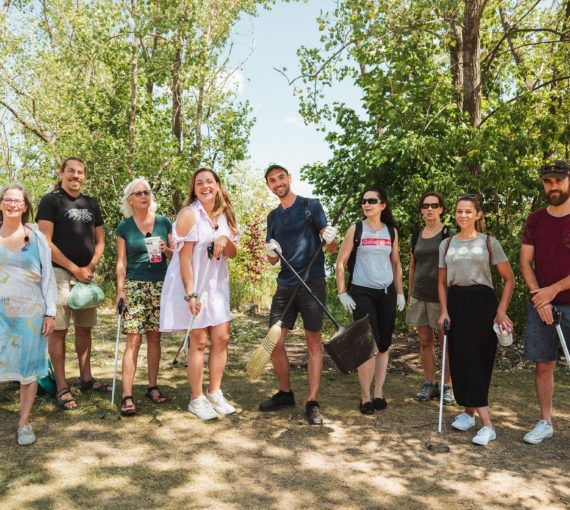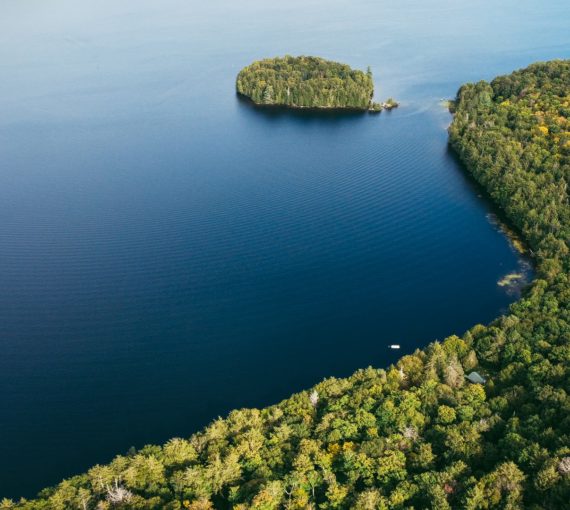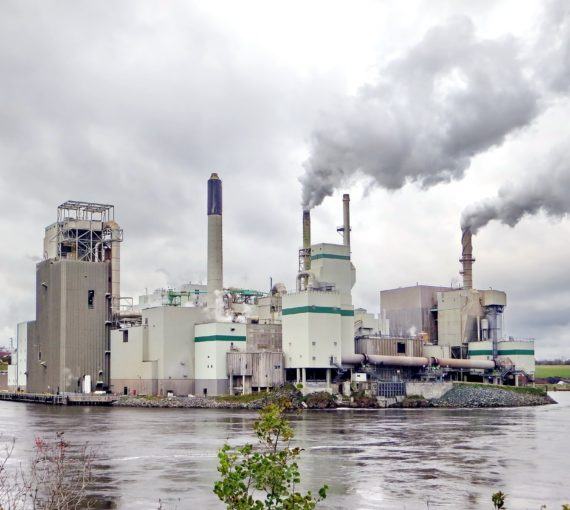
The IPCC report tells us that urgent action is needed, but it is not too late. The choices we make today will determine the path we choose. (Artwork: Julie Ktytor, Art for Climate Justice)
Today, the Intergovernmental Panel on Climate Change released a report on climate “Impacts, Adaptation and Vulnerability.” It’s a lot to take in, so we’ll try to help.
What does this report tell us?
This report shows that climate change impacts are rapidly getting more severe worldwide. Extreme weather-related events like heat waves, droughts, flooding and wildfires are already harming people, ecosystems, community safety, food security, infrastructure and the economy and it’s worsening.
Communities around the world are ill-prepared for the level of climate disruption that is already upon us. Adaptation plans are inadequately funded which is leaving our most vulnerable communities at risk.
Vulnerability to the impacts of climate change varies widely around the world and in different segments of society. Those suffering the worst impacts have contributed least to the crisis.
What does this mean for Canada?
We need to abandon the false (and dangerous) narrative that we can take bold action on climate while expanding the oil and gas industry – the largest and fastest-growing contributor to climate pollution in Canada.
Canada must confront the paradox of its climate action and make this decision with eyes wide open. We can choose to take bold action on climate and invest in our clean energy future which will lead to better health, long-term jobs and more resilient, safe and equitable communities. Or we can continue to support a polluting industry with dwindling jobs and a toxic legacy that concentrates wealth in to the hands of the corporate elite at the cost of their workers, Indigenous rights, front line communities and all life on Earth. We can’t continue to do both.
- The federal government must fulfill its promise to end fossil fuel subsidies and financing in Budget 2022 this spring.
- They must reject false information from the oil and gas lobby and put a cap on emissions from Canada’s top polluter and develop a timeline for full fossil fuel phase-out in Canada.
- The soon-to-be-released 2030 Emissions Reduction Plan must set us up to effectively and rapidly reduce emissions from all sectors by 2030.
- Government must introduce a Just Transition Act to ensure workers, Indigenous peoples, and frontline and vulnerable communities can benefit from the jobs and increased quality of life that will ensue from the necessary shift to clean energy.
- We must better protect and restore nature to help with climate adaptation.
- We need to invest in strong adaptation plans to protect ourselves from already occurring impacts and prepare our communities for the increased climate disruption still to come.
The longer we put things off, the harder, more expensive and less fair it becomes.
Is there hope?
Yes, there is. This IPCC report tells us it’s urgent, but not too late to act. The choices we make now to reduce emissions will determine whether we can avoid the worst impacts of the climate crisis.
Acting now to develop adaptation plans and to rapidly reduce emissions comes with many advantages.
It will generate tens of thousands of jobs while improving health, fighting climate change and making communities safer. That’s hopeful.
What can you do now?
It’s important to know that you are not expected to solve this enormous problem alone. We are in this together, each of us playing a different role in the diverse climate movement.
Many things you can do now can make a difference. Remember, taking action is the best antidote to despair. Choose one action to take now!
- AMPLIFY: Help us get the word out by sharing on Facebook, Instagram and Twitter.
- SIGN A PETITION: Say no to fossil fuel subsidies and financing in Budget 2022
- INSPIRE WITH CLIMATE ART: Put up powerful art posters to inspire others in your community.
- LEARN MORE: Read up on Canada’s Climate Ambition campaign.
- TALK AND LISTEN TO FRIENDS AND FAMILY: Sharing your feelings, fears and hopes about the climate crisis cultivates understanding and a shared sense of purpose, especially during these isolating times. You can learn to find common ground in difficult conversations with these resources.
Which IPCC report was this?
This is the second of three working group reports, which, along with three special reports and a synthesis report, make up the IPCC’s Sixth Assessment (AR6). The first report, billed as a ‘code red for humanity’ was released in August 2021 and assessed the physical science, showing climate change is widespread, rapid and intensifying. The third, expected in March, will be on climate change mitigation.
This decade, let’s come together to shift to a clean energy future that benefits us all.


